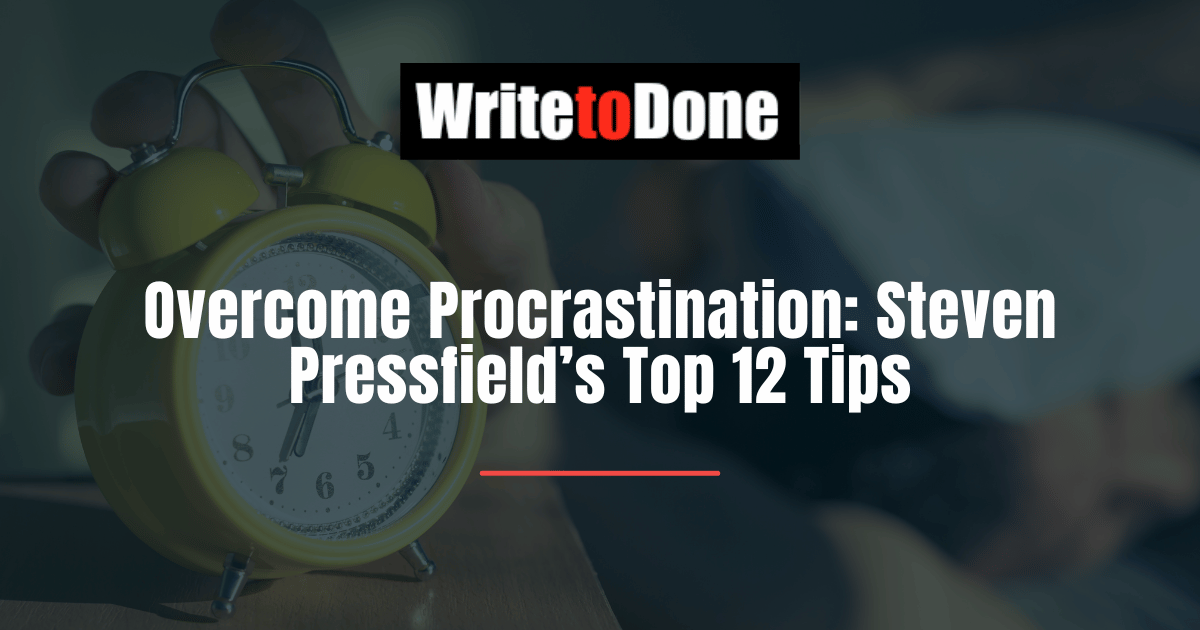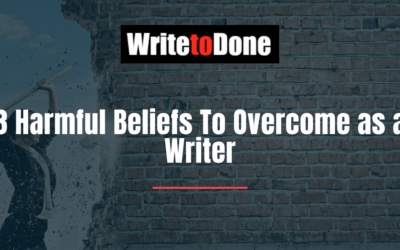Do you know how to overcome procrastination?
How many times do you make a promise to do a certain task and then do – nothing?
How often do you set a goal but never seem to make any progress towards achieving it?
You wish you could sit down and start working on your novel – the one you have been meaning to write for the longest time.
You want to stop watching so much TV, and start tweaking your next business idea. Perhaps start your painting your masterpiece today. Not tomorrow.
“Are you a writer who doesn’t write, a painter who doesn’t paint or an entrepreneur who never starts a venture? Then you know what resistance is.”
Steven Pressfield identifies resistance to be the main culprit.
Resistance is the most toxic force on the planet. It arises from within and takes the shape of procrastination, lack of motivation, insecurities, self doubt, fear and what not.
Resistance stops you from taking the first step in becoming truly professional.
Recently, I read three books by best selling author Steven Pressfield: The War of Art, Turning Pro, and his manifesto, Do the Work. These books literally changed the way I approached work, relationships, life. But mostly, my vocation.
“Turning pro is free, but it is not easy. You don’t need to take a course or buy a product. All you have to do is change your mind.” Steven Pressfield.
In a life changing moment – I turned pro. And I want to help you do that, with a little help from the man himself.
#1 Show up every day
“This is the other secret that real artists know and wannabe writers don’t. When we sit down each day and do our work, power concentrates around us. The Muse takes note of our dedication. She approves. We have earned favor in her sight. When we sit down and work, we become like a magnetized rod that attracts iron filings. Ideas come. Insights accrete.”
The first thing you need to do is start showing up. If you are a writer, aim to sit in your chair first.
All things start with a first step. Your job as a writer is to sit down.
#2 Stay on the job
“The most important thing about art is to work. Nothing else matters except sitting down every day and trying.”
Once you are already there, what are you going to do now?
Are you going to check your email for the umpteenth time, or hang out on the social media? Or are you going to do some research?
Get rid of the distractions and stay put. Keep going.
#3 Commit to the long haul
“A child has no trouble believing the unbelievable, nor does the genius nor the madman. It’s only you and I, with our big brains and our tiny hearts, who doubt and over-think and hesitate.”
Nobody said this is going to be easy. Nobody promised you riches the next day.
If you have a calling, you have to acknowledge that and stay in the game. It is probably going to be a long, hard one.
#4 Be patient
“Our role on tough-nut days is to maintain our composure and keep chipping away. We’re pros. We’re not amateurs. We have patience. We can handle adversity. Tomorrow the defense will give us more, and tomorrow we’ll take it.”
Committed for the long haul? Now you need patience. Bucket loads of.
#5 Seek order
“The difference between an amateur and a professional is in their habits. An amateur has amateur habits. A professional has professional habits. We can never free ourselves from habit. But we can replace bad habits with good ones. We can trade in the habits of the amateur and the addict for the practice of the professional and the committed artist or entrepreneur.”
Do you have a schedule that you follow? Do you have a routine in place?
The best way to defeat habits of procrastination and the inability to start anything is to streamline everything. Take the guesswork out. Know what it is that needs to be done and dive into it.
Don’t think.
#6 Act in the face of fear
“Are you paralyzed with fear? That’s a good sign. Fear is good. Like self-doubt, fear is an indicator. Fear tells us what we have to do. Remember one rule of thumb: the more scared we are of a work or calling, the more sure we can be that we have to do it.”
Fear is good. Remember the lessons you teach your own children – brave is someone who is not without fear but who moves ahead in spite of it. Now follow the advice yourself.
Yes, you are afraid. So am I, but we still have to work, okay?
#7 Accept no excuses
“In his heart, the amateur knows he’s hiding. He knows he was meant for better things. If the amateur had empathy for himself, he could look in the mirror and not hate what he sees. Achieving this compassion is the first powerful step towards moving from being an amateur to being a pro.”
So we have dealt with fear. What other excuses could derail us? There are plenty:
You are not good enough, you don’t have the time to do this, there is too much competition, nobody cares what you do, it is not perfect … blah blah blah. This is your resistance talking. Don’t pay any attention.
#8 Be prepared
“Practise before you need it so that when you do, you will have it.”
Know that you can only work for 40 minutes before you have to take a break. Realize that you can only work a certain number of hours. Understand that you need your materials and information before you can begin.
Be prepared. Begin with the right mindset. Be in control.
#9 Don’t over-identify with the job
The pro loves her work. She is invested in it wholeheartedly but she does not forget that the work is not her – her artistic self contains many works. Already the next one is percolating inside her. The next will be better. And the one after, better still.”
You are a professional, but that’s not only who you are. You are other things, you have other roles to play.
As far as work is concerned, the nature of it will vary. Try and take a step back. Leave some wiggle room to improve, discard or alter your offering.
#10 Ask for help
“A pro doesn’t feel like he knows everything, or can figure out everything on his own. He seeks out a knowledgeable teacher and listens with both ears.”
This one is easy, if you let it be.
Surround yourself with people who support you. Get rid of all naysayers. And when things get hard, ask for help.
#11 Don’t take failure or success personally
“The professional has learned that success, like happiness, comes as a by-product of work. The professional concentrates on the work and allows rewards to come or not come, as they like.”
As a professional, you show up every day and you do your thing. You will encounter successes and failures, but they are probably not under your control. Not all the time, anyway.
Sometimes it’s an incredible stroke of luck, sometimes it doesn’t look like an even playing field. Don’t get hung up on it. Continue.
#12 Do self-validate
“The amateur craves third-party validation. The amateur is tyrannized by his imagined conception of what is expected of him. He is impressed by what he believes he ought to think, how he ought to look, what he ought to do, and who he ought to be.”
Don’t be so hard on yourself. Come on!
You are human. You are not perfect, but you don’t have to be what others think you should be. You don’t need everybody’s approval.
But you do need your own.
That’s it. That’s what I walked away with, from Steven Pressfield’s books. Inspired? Get your own copies. Write your own manifesto. And look resistance in the eye and march on anyway.
What are your thoughts about resistance?
Check out these posts about how to overcome procrastination:
Are You a Procrastinator? Check Out Which Kind You Are
Overcome Procrastination With These Easy Strategies
About the author:
Marya Jan is a blogging coach and an online copywriter. She can be found at Writing Happiness. Check it out and grab the free ebook 9 New Rules of Blogging.
Image Procrastination courtesy of BigStockPhoto

















